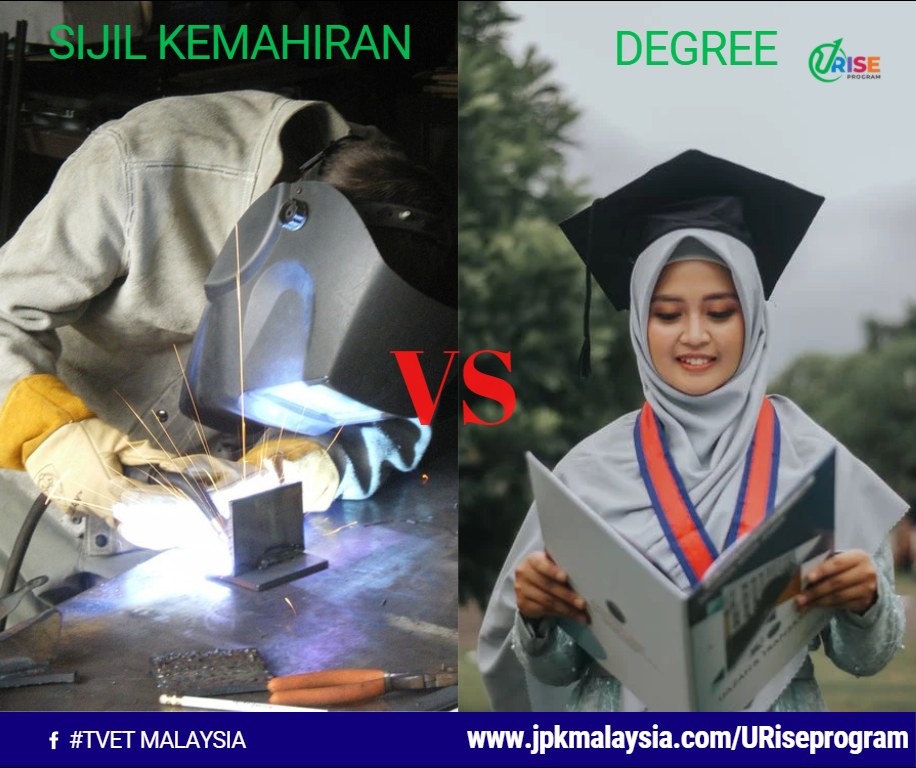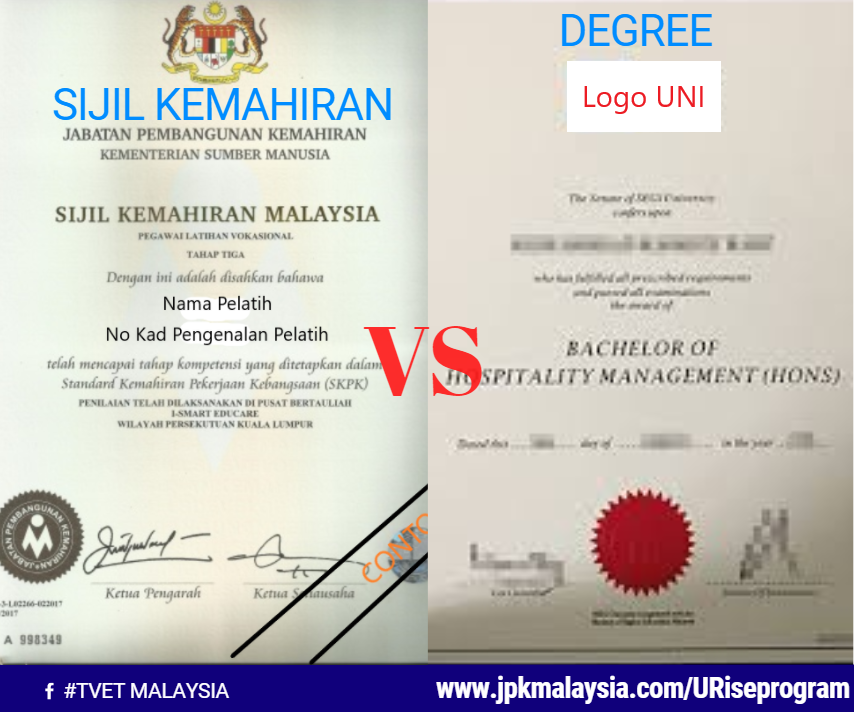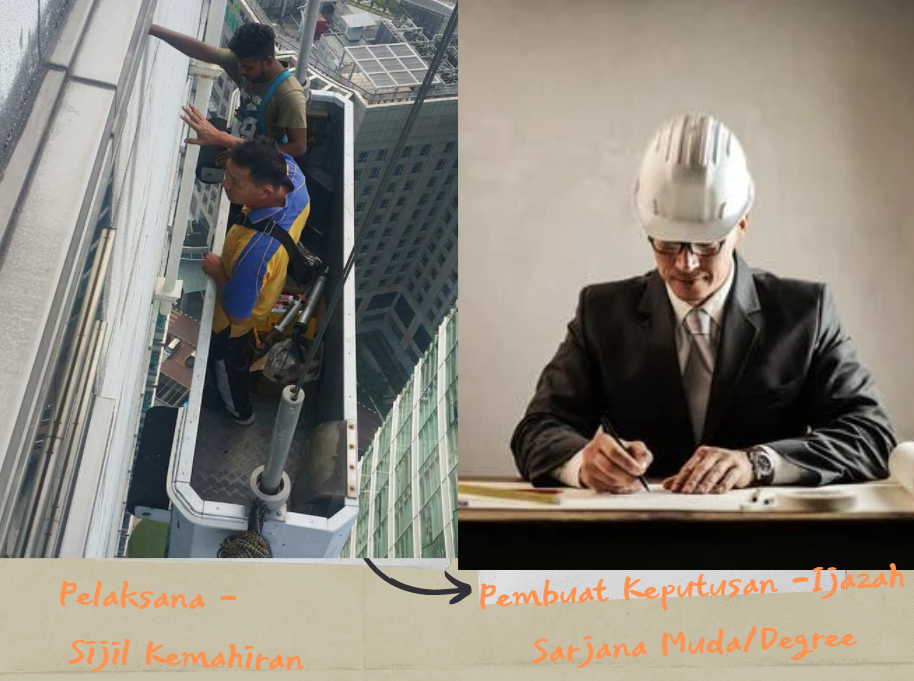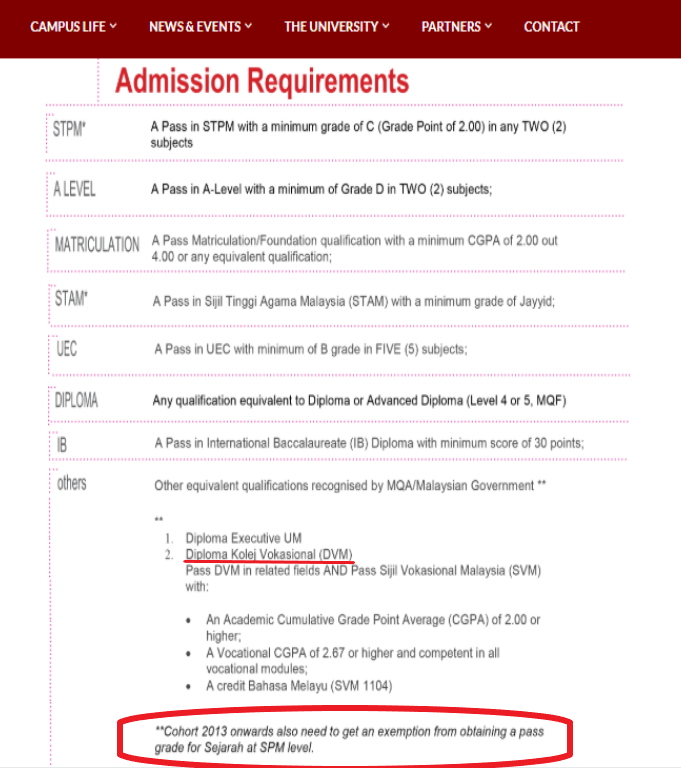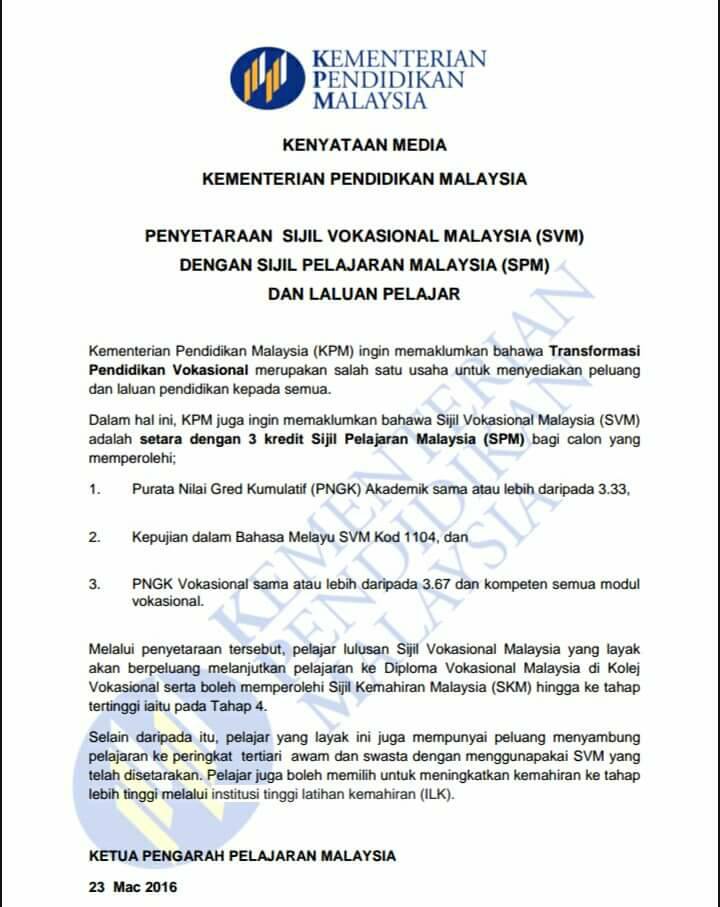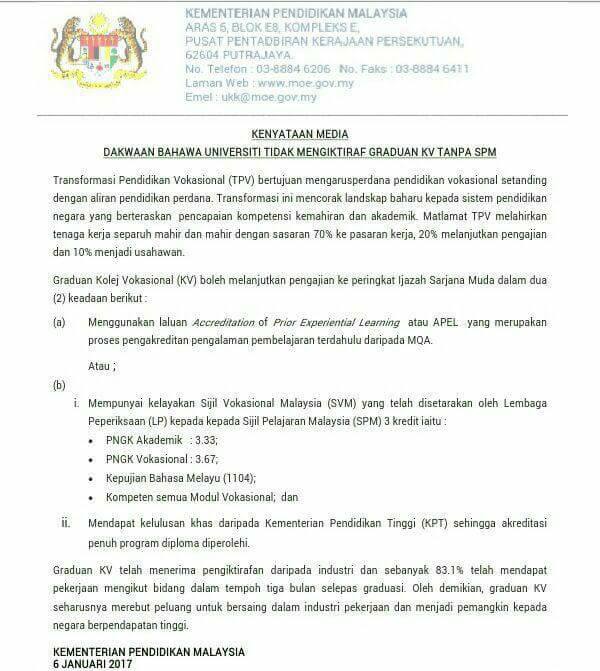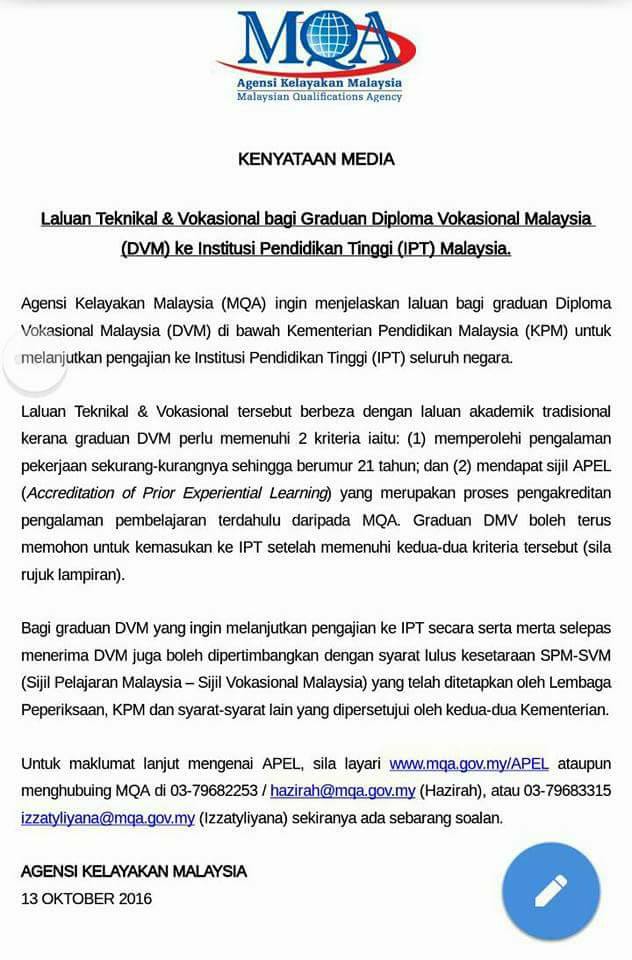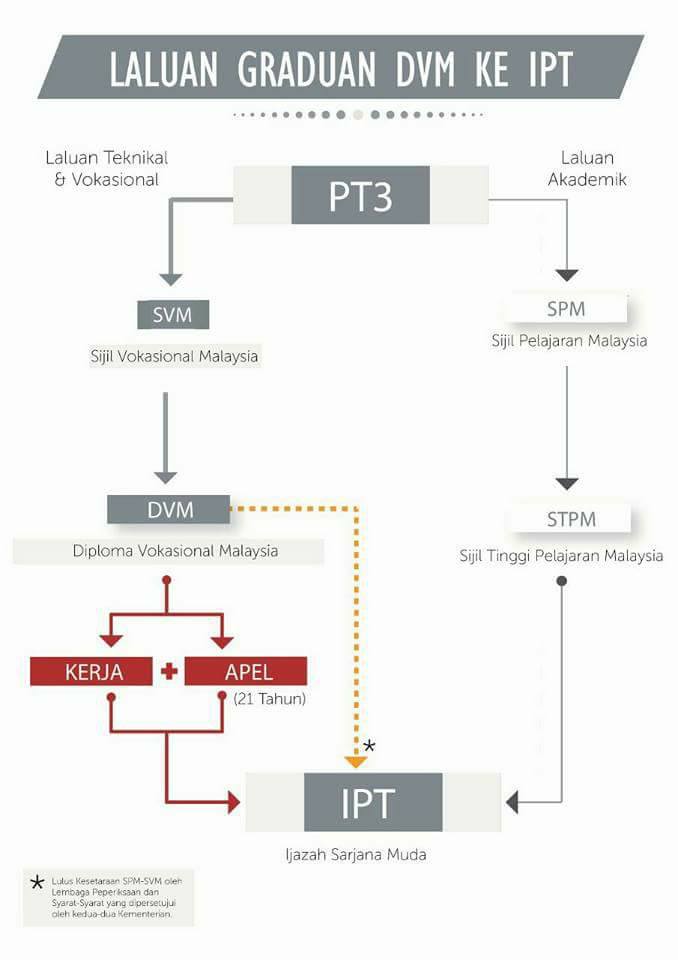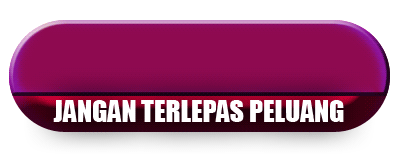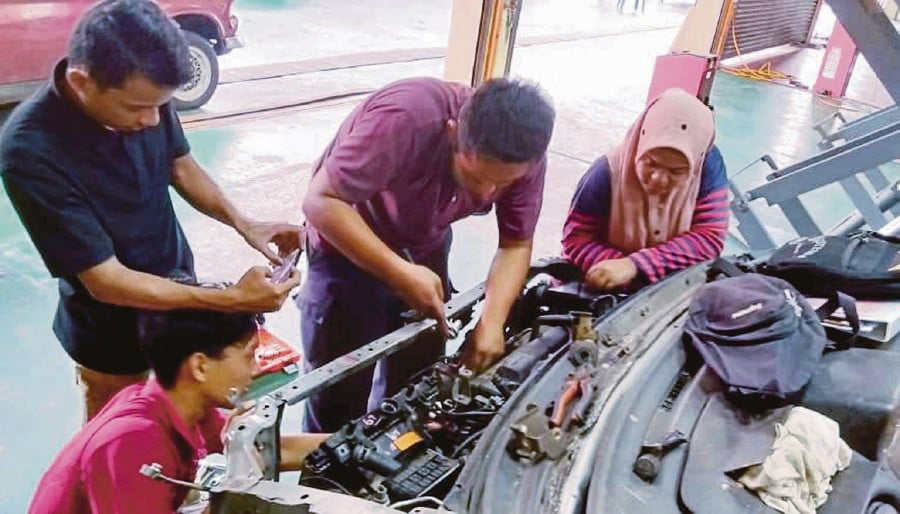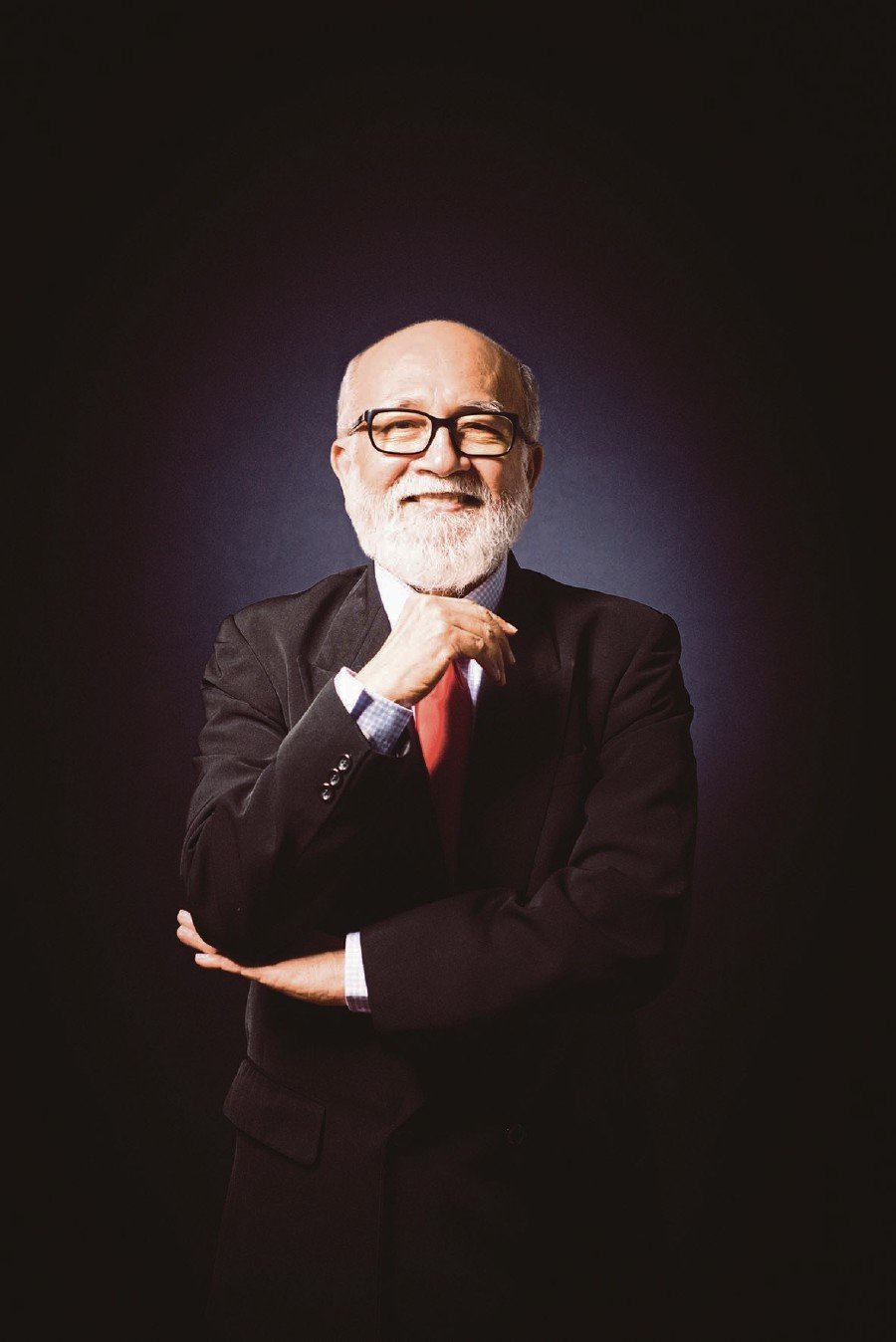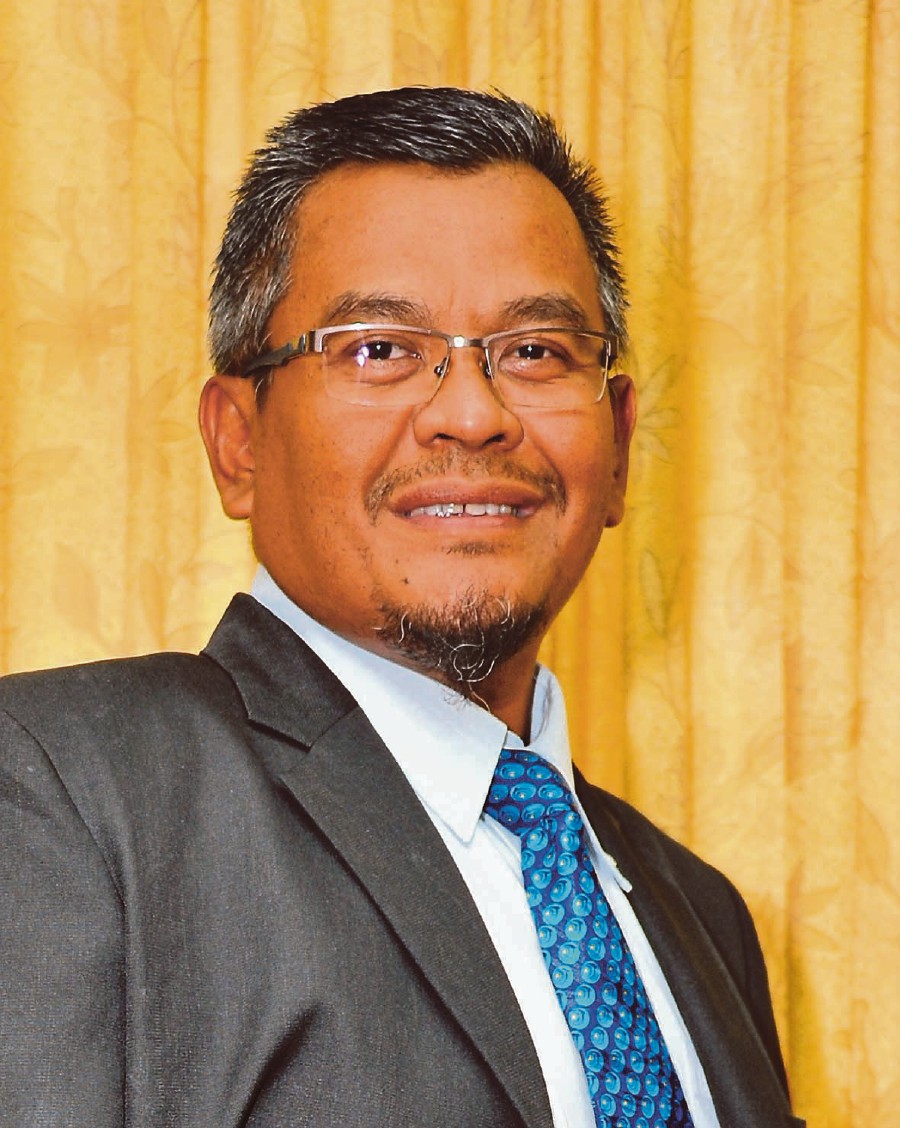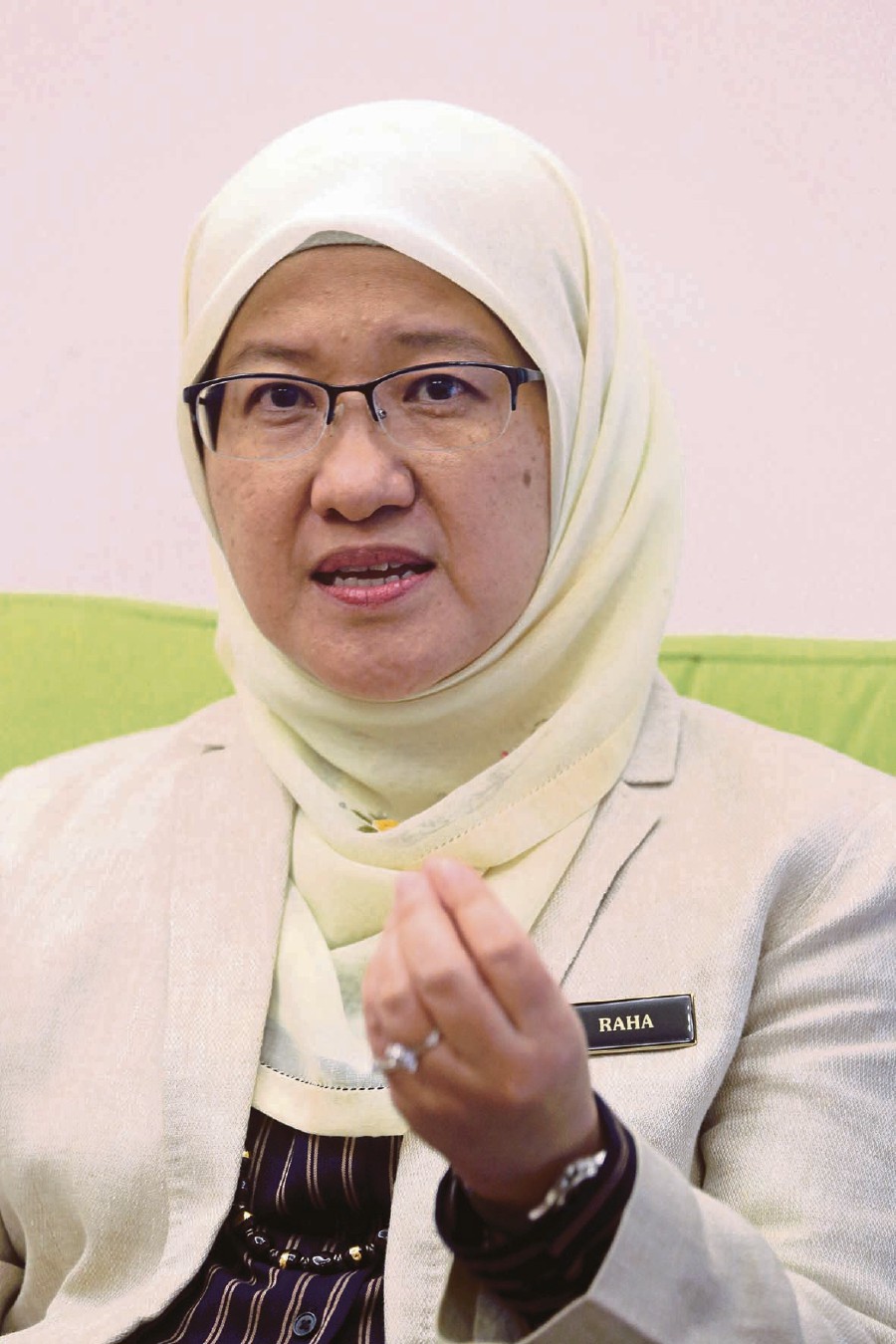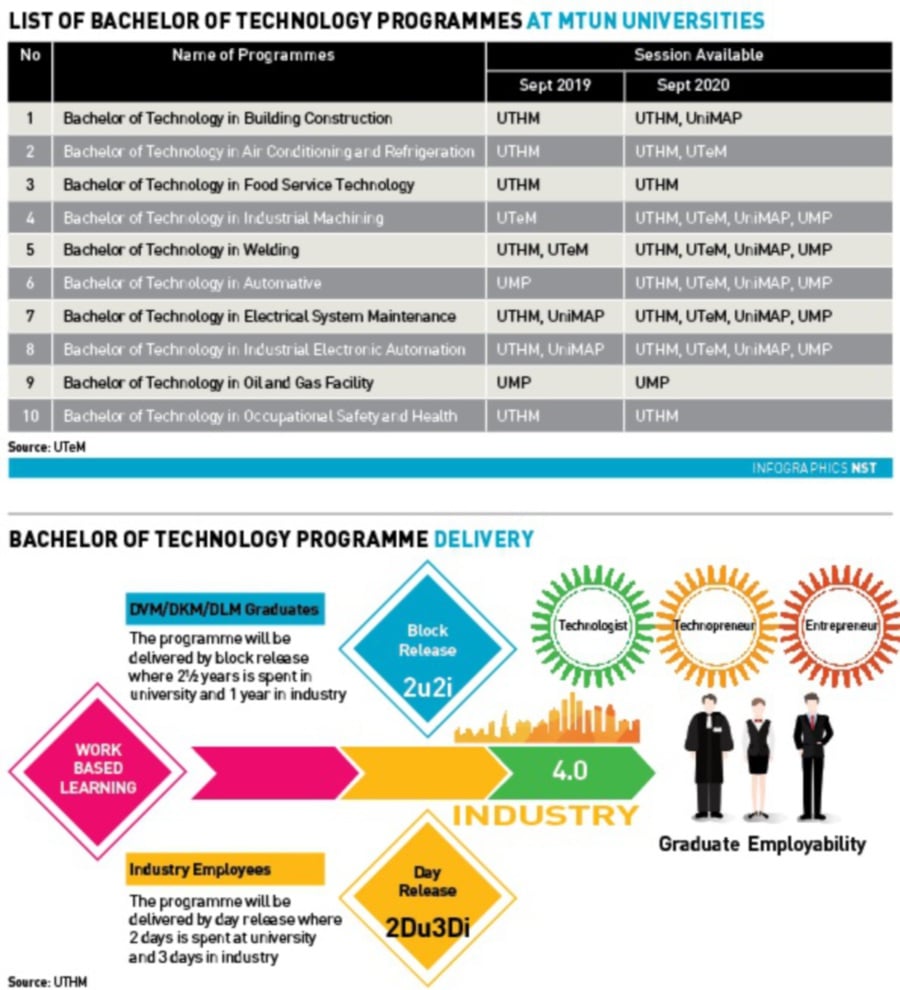Topik Sijil Kemahiran Vs Degree ni hangat dibincangkan 2 hari lalu di Facebook apabila sebuah syarikat ‘media sosial’ menghasilkan video yang kandungannya seolah-olah terlalu menyanjung tinggi sijil kemahiran dan merendahkan pemegang Ijazah Sarjana Muda@Degree. Namun, jika anda dengar betul-betul dan tenangkan diri, ia cuma pendapat pengacara tersebut (nasib baik dia tak claim dia pakar ni ke pakar tu).
Baik, kita kaji dengan fakta ya, jangan cakap kosong je.
Apa tu sijil kemahiran?
Dalam konteks ni, kita gunakan standard kebangansaan punya la ya, Sijil Kemahiran Malaysia.
Persijilan Kemahiran Malaysia menawarkan lima (5) tahap persijilan:
Sijil Kemahiran Malaysia 1 (SKM Tahap 1)
Sijil Kemahiran Malaysia 2 (SKM Tahap 2)
Sijil Kemahiran Malaysia 3 (SKM Tahap 3)
Diploma Kemahiran Malaysia (DKM) Tahap 4
Diploma Lanjutan Kemahiran Malaysia (DLKM) Tahap 5
Rata-ratanya, budak kemahiran belajar selama setahun hingga tiga tahun (bergantung kepada program) untuk memperolehi kemahiran serta Sijil Kemahiran Malaysia bidangnya.
Pembelajaran program kemahiran adalah 20-30% teori & 70-80% amali (berbanding dengan program akademik, rata-ratanya 60% teori & 40% amali (biasanya kurang daripada tu)
Cuma sebilangan kecil sahaja yang sambung ke Tahap 4 & 5 (DKM & DLKM), iaitu 11.57% sahaja setakat Disember 2017 (Sumber: Jabatan Pembangunan Kemahiran Malaysia)
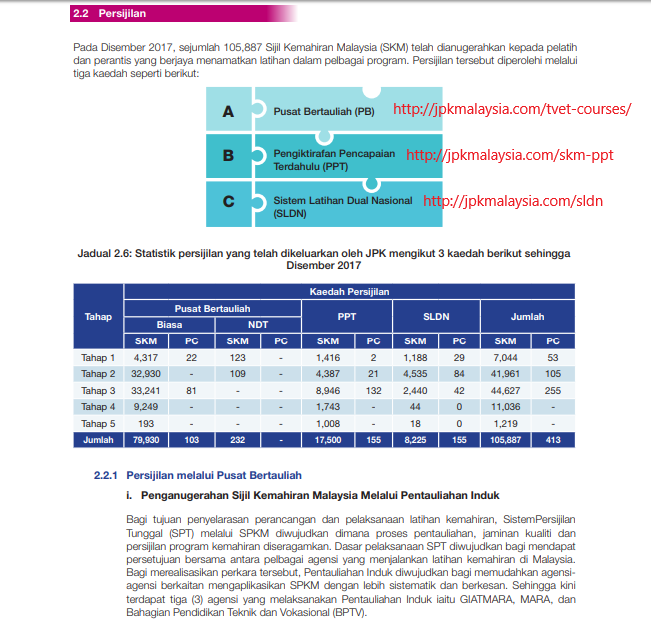
Seperti ramai netizen yang telah komen, pemegang sijil kemahiran adalah lebih kepada pelaksana. Merekalah yang akan melaksanakan kerja-kerja di pelbagai industri seperti perkilangan, perladangan, perhotelan dan sebagainya.
Jadi, apa kelebihan ambil sijil kemahiran?
1. Kebolehpasaran graduan kemahiran adalah lebih tinggi berbanding dengan graduan universiti (diploma/degree/masters/PhD)
Pengarah Bahagian Pendidikan Teknik dan Vokasional (BPTV), Zainuren Mohd Nor
(Source: www.nst.com.my)
2. GAGAL SPM pun boleh menjana pendapatan sehingga RM20,000 sebulan
Disebabkan kemahiran teknikal pemegang SKM mendapat permintaan tinggi di industri (terutamanya di sektor tertentu seperti minyak & gas (O&G)), adalah tidak mustahil untuk pemegang SKM juga boleh mendapat pendapatan melebihi 5 angka sebulan, walaupun bekerja dengan orang lain sahaja. Antara contohnya adalah kimpalan bawah air (underwater welding) dan perpaipan (jurugegah). Ramai juga yang jadi tauke/majikan menjalankan perniagaan sendiri di mana pendapatannya mungkin mencecah sejuta setahun (contohnya bidang kecantikan dan rambut yang buka francais, penternak yang mengusahakan ladang perikanan/udang dsbgnya)
3. Sijil Kemahiran Malaysia diterima di industri dan luar negara.
Ni adalah maklum balas daripada graduan kemahiran yang pernah mohon kerja di luar negara seperti UAE (Dubai), China (Beijing), Perth (Australia) dll.
Walaupun degree yang ada MQA juga diiktiraf di banyak negara, tetapi saya rasa jika dibandingakan dengan Jata Negara Malaysia, min rasa Sijil Kemahiran Malaysia kita ni lebih senang diterima/dikenali di luar negara kot.
Degree / Ijazah Sarjana Muda
Sebaliknya, kumpulan pemegang ijazah adalah mereka yang pemikirannya lebih tajam diasah/ada kemahiran fikiran kritikal yang lebih tinggi berbanding dengan graduan sijil kemahiran (secara amnya).
Mereka ini lazimnya adalah pembuat keputusan, memikirkan dan merancang dulu segala aspek kerja dengan teliti (termasuklah Akta, Peraturan & SOP) dan bukan laksanakan tugasan tanpa memikirkan dan merancang terlebih dahulu.
Apa pula kelebihannya ambil ijazah sarjana muda/degree holder?
- Belajar di IPT untuk program ijazah sarjana muda dapat mengasah lagi secara mendalam pemikiran kritikal, kemahiran komunikasi, menganalisis dan beberapa soft skills yang lain. (Walaupun elemen ASK – Attitude, Skills & Knowledge tu wujud di peringkat Sijil Kemahiran, namun ia tidak begitu ditekankan dan mendalam)
Contohnya: Budak kemahiran mungkin pandai pasang penghawa dingin tetapi kebanyakkannya mungkin tidak begitu pentingkan/tahu aspek lain seperti bahan pendingin yang digunkan serta kesannya kepada alam sekitar sekiranya tidak dikendalikan dengan baik. Maka, pihak Jabatan Alam Sekitar (yang min rasanya terdiri daripada kumpulan perancangan) telah mewajibkan semua juruteknik, pengeluar sektor penyejukbekuan dan penyaman udara memiliki tauliah pengendalian bahan pendingin di bawah Akta 127.
Lagi satu contoh yang lebih mudah dikaitkan dengan kehidupan anda sekarang. Pada pendapat anda, petugas baris hadapan (frontliner) dan mereka yang membuat perancangan strategik untuk mengurus dan mengekang penularan wabak COVID-19 ni, anda rasa mereka ni pemegang sijil kemahiran ke degree (atau lebih tinggi)?
Namun, usaha membendung penularan wabak ini adalah hasil semua pihak, pengurusan (degree holder), kakitangan sokongan (ada yang pemegang sijil kemahiran, ada yang degree), pelajar-pelajar kemahiran (Kolej Vokasional, ILP, Politeknik) yang menghasilkan PPE untuk petugas baris hadapan serta seluruh rakyat Malaysia (ada pemegang sijil kemahiran, ijazah sarjana muda & yang tiada sijil :-P)

hanya semasa pendidikan tinggi/Universiti sahaja baru mula diperkenalkan.
2. Dengan adanya Degree, anda biasanya akan merancang, menyelia atau mengurus kumpulan pelaksana (pemegang sijil kemahiran) untuk melakukan tugasan, sesetengahnya mungkin dianggap 3D (Dirty, Difficult & Dangerous). Kebiasaanya juga gaji adalah lebih tinggi berbanding dengan gaji pemegang sijil kemahiran.
3. Peningkatan status sosial / kebanggaan keluarga
Masyarakat kita rata-ratanya masih memandang rendah terhadap juruteknik/pekerja kemahiran dan menganggap kalau tidak belajar di menara gading, masih ada kekurangannya.
Anda akan rasa megah dan bangga sekiranya ada degree (kalau ada kemahiran teknikal lagi bagus!) dan tak rasa rendah diri bila bersama graduan-graduan IPT, tak kira di tempat kerja ataupun kehidupan sosial.
# Namun, ini semua adalah bergantung kepada anda. Jika keyakinan diri tinggi, tanpa degree pun ok je kan?
Kesimpulannya? Sijil Kemahiran VS Degree, Mana Lebih Bagus?
Sebenarnya, ia tidak boleh dibandingkan begitu sahaja. Masing-masing ada kelemahan serta kelebihannya tersendiri, ada kegunannya tersendiri, seperti yang telah dibincangkan di atas.
Kedua-duanya saling melengkapi.
1. Kalau dah ada sijil kemahiran, berusahalah untuk sambung degree. Ijazah Eksekutif @ Executive Bachelor pun jadilah, kalau sekadar kerja di sektor swasta.
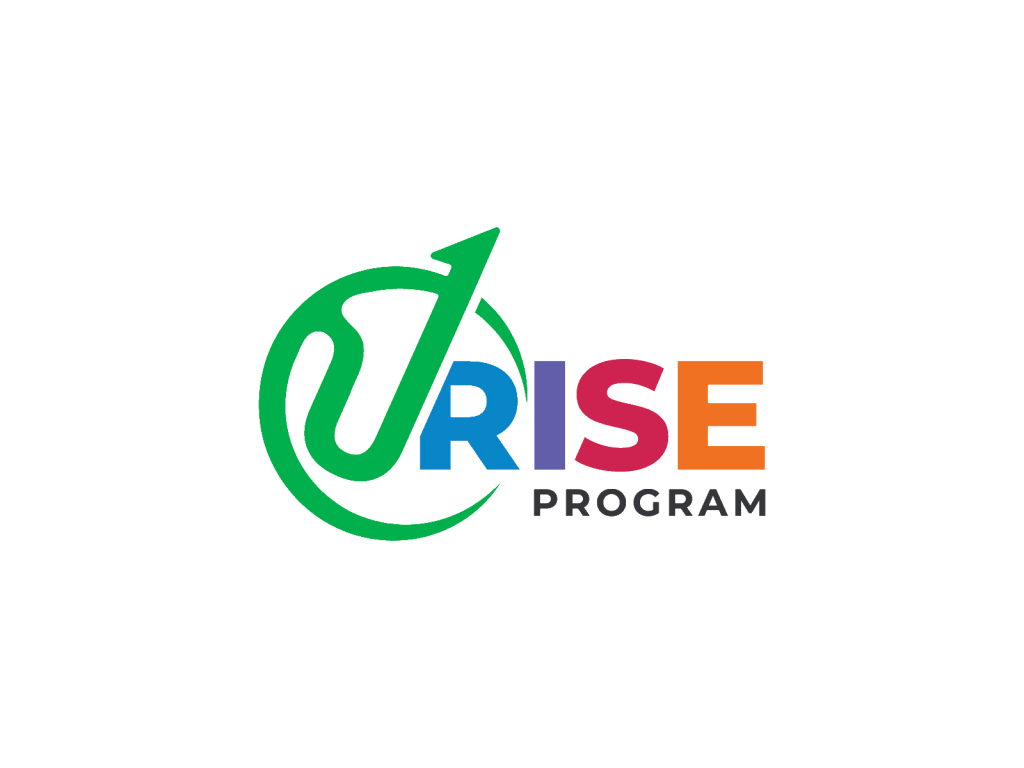
Nak daftar? Isi Borang Permohonan Di Sini
a. Dapat naik pangkat (rata-ratanya sektor swasta tak perlukan degree MQA untuk kenaikan pangkat)
b. Dapat tingkatkan status sosial dan membanggakan ahli keluarga serta role model kepada anaka-anak anda kelak. Ilmu itu penting. Dan ilmu yang bermanfaat boleh bawa hingga ke penghujung hayat.
c. Dapat juga sambung ke Degree atau Masters (MQA) masa depan jika berminat.
Kalau perlukan Degree Teknikal dari MTUN ataupun yang ada pengiktirafan MQA, boleh je mohon masuk IPT guna APEL A.
2. Kalau dah ada Degree, baik juga kalau dapat belajar kemahiran teknikal (jangka pendek/panjang) ataupun persijilkan melalui pengalaman kerja terdahulu (PPT).
Mengapa ada Degree pun masih nak kemahiran teknikal? Lihat apa yang MP Permatang Pauh, Nurul Izzah ulas.
Misalnya ketika saya menggunakan penerbangan MAS, dalam pesawat baru Airbus, tandas tiba-tiba tidak berfungsi. Dan pramugari sibuk mencari juruteknik untuk membaikinya.
Kenapa? Kerana jurutera seperti saya tidak akan dapat membaiki apa yang perlu dibaiki.
Nurul Izzah, anggota parlimen Permatang Pauh serta bekas pengerusi Jawatankuasa Pemerkasaan TVET
Jadi, harap graduan dari kedua-dua aliran saling hormat-menghormati. Masing-masing ada peranan dalam industri dan kehidupan harian kita.
Pada pendapat min, paling best ada kedua-duanya sekali, mengapa nak pilih Sijil Kemahiran Vs Degree?
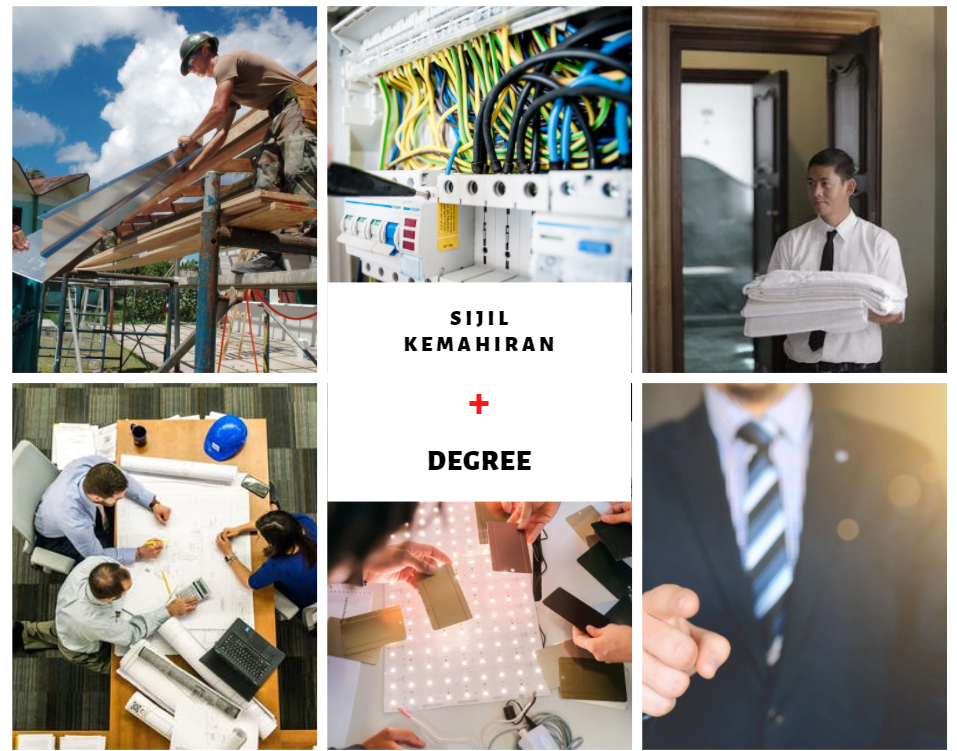
Jika anda nak sambung/mohon:
1. Degree/executive degee: URiseProgram
2. Sijil Kemahiran Malaysia melalui pengalaman kerja: SKM-PPT
3. Kursus TVET/kemahiran: KursusTVET
